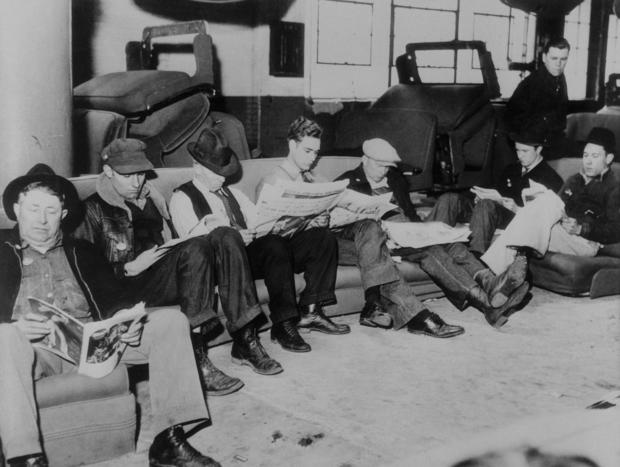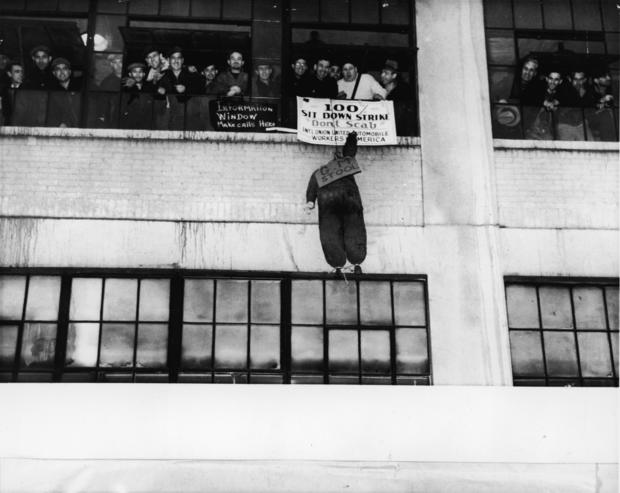This day in history: Autoworkers start the Flint Sit-Down Strike in 1936
(CBS DETROIT) - On Dec. 30, 1936, workers at the General Motors body plant in Flint took part in what was called the most significant strike in American labor history.
Workers at Fisher Body Plant No. 1 sat inside the factory in an effort to stop production, demanding to keep their jobs from going to non-workers. Sitting inside prevents others from doing their job.
According to the Library of Congress, workers in the plant played board games, gave lectures and organized concerts. Supporters even arranged food deliveries.
Workers took over the second flint plant on Jan. 1, 1937 and eventually the Chevy Plant No. 4, which was the largest owned by GM, a month later.
On Jan. 11, 1937, police attempted to stop the food deliveries but was met with water from hoses and car parts thrown from inside the plant. According to the Sloan Museum of Discovery in Flint, then-Michigan Gov. Frank Murphy sent the National Guard but didn't direct them to use force against the workers.
Plants in other cities, including Atlanta, Kansas City, and Cleveland, were also on strike. Workers later reduced their demands to the automaker recognizing United Auto Workers as a sole bargaining agent for the employees.
The strike lasted for 44 days, and on Feb. 11, 1937, it officially ended after GM President Alfred Sloan offered a $25 million wage increase and recognition of the UAW union. By that time, workers inside Fisher Body Plant No. 1 had been living without heat or power for several weeks and refused to vacate the facility as Murphy urged GM to negotiate.
The sit-down strike was considered the first major win for unionization in America. Additionally, UAW memberships increased to hundreds of thousands following the strike. Wages also increased by 300% after other sit-down strikes occurred in Detroit, leading to Packard, Goodyear and Goodrich announcing changes to wages.





